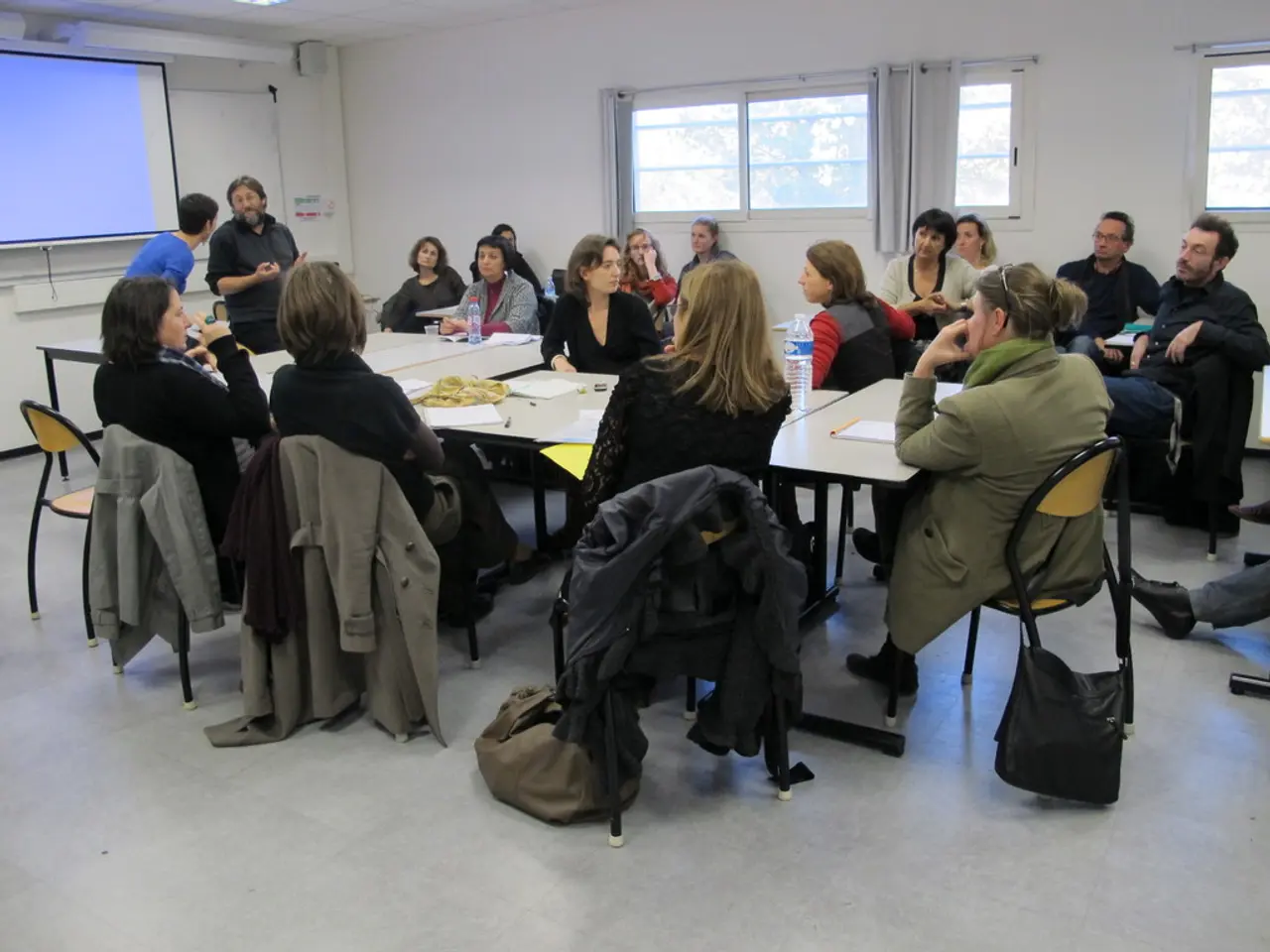Highlighting the Interplay: Social Interaction Skills versus Self-Understanding Skills
Interpersonal and intrapersonal skills are essential components for personal and professional growth. These skills help individuals navigate their personal lives and interact effectively with others in various situations.
Interpersonal Skills
Interpersonal skills are the abilities used to interact, communicate, and build relationships with other people. These skills primarily focus on external social interactions and include verbal and nonverbal communication, empathy, conflict resolution, collaboration, leadership, and networking.
Interpersonal skills are crucial for establishing and maintaining personal and professional relationships, collaborating with colleagues on team projects, resolving conflicts, finding solutions to problems, adapting to new situations, and embracing change.
Intrapersonal Skills
In contrast, intrapersonal skills involve understanding, managing, and communicating with oneself. These skills concentrate on internal self-awareness and self-regulation. Intrapersonal skills focus on self-awareness, emotional well-being, resilience, personal development, and setting and achieving personal goals.
Examples of intrapersonal skills include self-confidence, persistence, openness to change and new ideas, ability to overcome distractions, time management, goal-setting, and self-motivation. Intrapersonal skills hold significance in understanding our own needs and desires, managing emotions and coping with challenges, developing a growth mindset, and building and maintaining strong relationships with others.
The Importance of Both Skills
Both interpersonal and intrapersonal skills contribute to personal and professional success. They require self-awareness and can be developed and improved through practice and self-reflection. Cultivating healthy habits contributes to intrapersonal well-being, which is intricately linked to physical, emotional, and mental health.
Establishing realistic and achievable goals is crucial for intrapersonal development. Practicing mindfulness by focusing on your thoughts, feelings, and surroundings without judgment or distraction can also help in personal growth. Maintaining a journal serves as a valuable tool for self-reflection.
Embracing a Growth Mindset
Embracing a growth mindset in your interactions means viewing setbacks not as failures but as valuable experiences that contribute to personal and professional development. This not only enhances collective productivity but also fosters a sense of shared accomplishment.
Tips for improving interpersonal skills include practicing active listening, offering empathy, engaging in meaningful conversations, and developing a growth mindset. Actively participating in collaborative efforts involves working as a team and contributing your unique skills and perspectives.
In summary, interpersonal skills help you effectively relate and communicate with others, while intrapersonal skills enable you to understand and regulate yourself. Both are complementary and essential for personal and professional success.
- Developing resilience, a key intrapersonal skill, allows individuals to bounce back from setbacks and foster continuous personal growth.
- Emotional intelligence, an aspect of intrapersonal skills, is crucial in understanding and managing emotions, contributing to improved emotional well-being.
- Personal growth is enhanced by adopting a growth mindset, which encourages learning from mistakes and embracing challenges for self-improvement.
- Mindfulness, another intrapersonal skill, can lead to better focus and mental health by encouraging presence and awareness in daily life.
- Effective time management, a prominent interpersonal skill, can increase productivity and personal effectiveness, as it permits individuals to prioritize and accomplish more in less time.
- Working on personal development involves building self-esteem, which empowers individuals to make better decisions, manage conflict, and maintain strong relationships.
- Intrapersonal skills like openness to change and new ideas foster self-motivation, which in turn, plays a significant role in personal development and long-term success.
- Educational and self-development pursuits, especially those focused on personal-growth, are essential for instilling a growth mindset and enhancing both interpersonal and intrapersonal skills.




